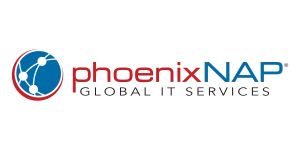Phoenix NAP
Being a traditional hosting company, Phoenix NAP has always been working to offer the latest and greatest in cloud services and the hosting space.
Their fully S3-compatible storage solution offer, combined with their bare-metal and on-premise cloud solutions, are a fine choice for anyone not willing to give in to the “giants”, like Amazon, Google, and Microsoft.
PhoenixNAP has valuable partnerships with large tech companies, such as Cisco, Intel, and VMware.




